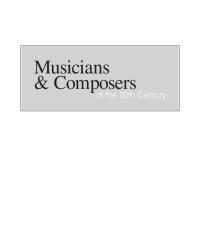Reference collection is a good place to start your research, such as biographies, dictionaries, encyclopedias, directories, bibliographies, etc.
There are many online reference material in reference databases.
 Musicians and Composers of the 20th Century
by
Benny GoodmanDizzy GillespieJim MorrisonKurt Cobainthese are the people who helped shape the history of music. Their stories and others are told in Mucicians and Composers of the 20th Century. This five volume set offers biographical and critcal ess
Musicians and Composers of the 20th Century
by
Benny GoodmanDizzy GillespieJim MorrisonKurt Cobainthese are the people who helped shape the history of music. Their stories and others are told in Mucicians and Composers of the 20th Century. This five volume set offers biographical and critcal ess